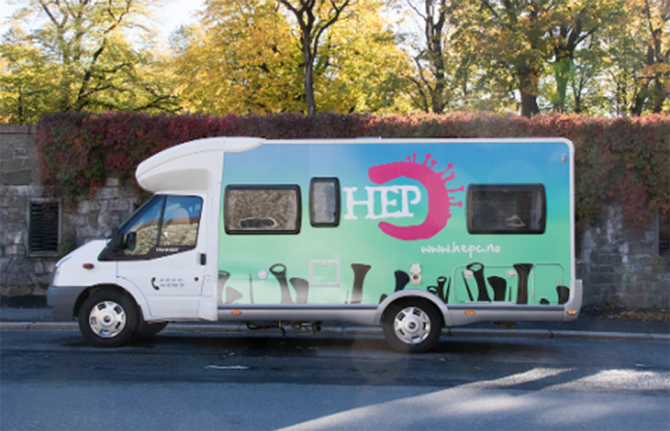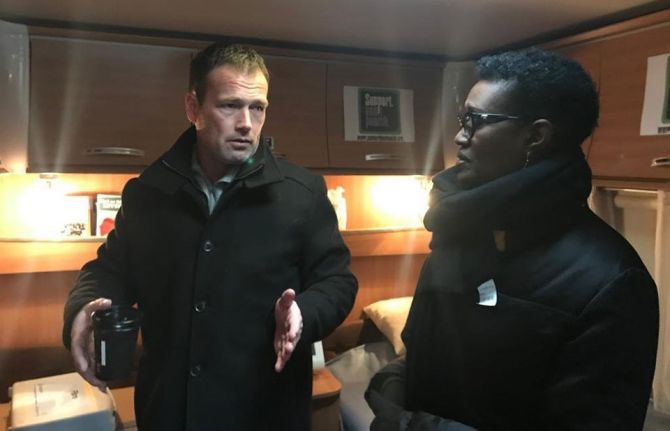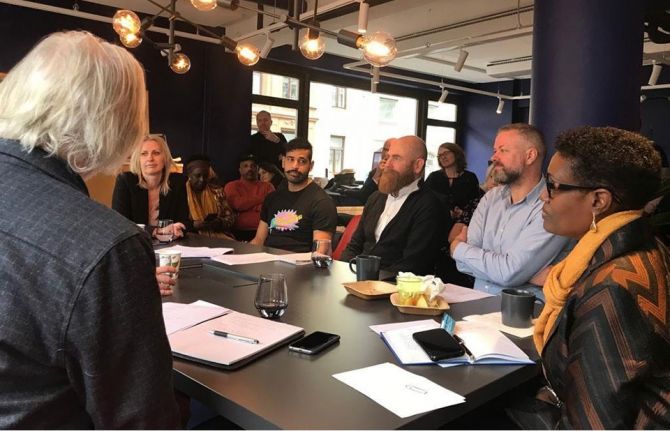



Feature Story
Norway’s community organizations ensuring health, dignity and rights
17 March 2020
17 March 2020 17 March 2020It was a very different morning bus ride for UNAIDS Executive Director Winnie Byanyima as she boarded the hepatitis bus in Oslo, Norway, to hear more about the work of ProLAR, an organization that supports people who use drugs. ProLAR provides a range of services, including opioid substitution therapy and testing for HIV and hepatitis C. It is also active in calling for changes in drug policy and promotes evidence-informed policy that involves the affected communities.
“We welcome people who use drugs into a warm, safe space. Here we can talk, get to know each other then take the necessary tests,” explained Ronny Bjørnestad, Managing Director of ProLAR.
According to the European Monitoring Centre for Drugs and Drug Addiction, around 9000 people who inject drugs lived in Norway in 2019, many in the two largest cities, Oslo and Bergen. In 2015, the Norwegian Government presented a new action plan addressing substance use and addictions that prioritizes prevention, early intervention, treatment and aftercare for people who use drugs. In 2018 the European Centres for Disease Control reported that there were only six new diagnosis of HIV among people who inject drugs in Norway.
Ms Byanyima also visited Sjekkpunkt, a free and anonymous testing service in Oslo for HIV and other sexually transmitted infections that caters for gay men and other men who have sex with men. Rolf Martin Angeltvedt, Director of Helseutvalget, said that, “Checkpoint does not say “no” to anyone who wants to come in to talk and take a test. We offer free, anonymous and rapid testing.”
New HIV infections among gay men and other men who have sex with men have been declining steadily in Norway in recent years. In Norway the most commonly reported mode of HIV transmission in 2018 was heterosexual transmission.
Following the visit to Sjekkpunkt, Ms Byanyima met with representatives of civil society organizations working in Norway on issues concerning people living with and affected by HIV. The dialogues centred around sex work, chemsex, ageing, youth, lesbian, gay, bisexual, transgender and and intersex people and migration. In Norway, civil society groups play a critical role in addressing the AIDS epidemic by supporting prevention, treatment and care efforts.
“The leadership of networks and peer-led organizations working to support people living with, and affected by, HIV is instrumental. More than ever, the role of civil society is critical to removing barriers to health, dignity and the enjoyment of human rights. I encourage you to build bridges with civil society organization in other regions of the world. We must work together to reverse the disturbing trend of shrinking space and lack of funding for civil society or we will fail to reach the target of ending the AIDS epidemic by 2030,” said Ms Byanyima.



